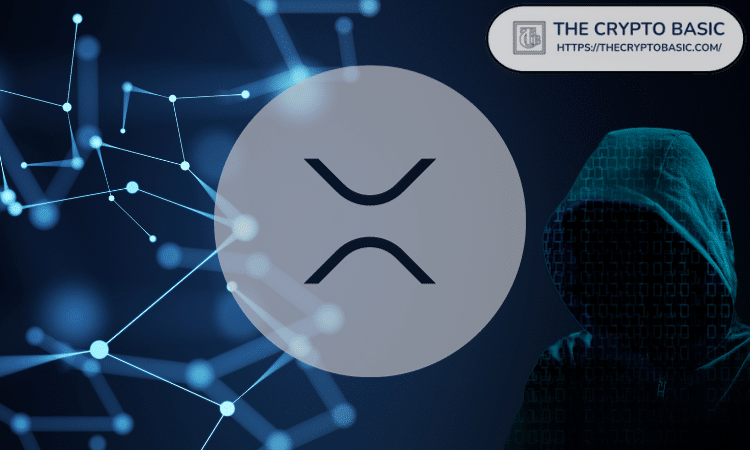In an exchange on social media, former Ripple developer Matt Hamilton responded to recent claims from Justin Bons, the founder of Cyber Capital, that XRP is centralized.
Recently taking to X, Bons made a bold statement that has sparked controversy within the crypto community. According to him, Bitcoin (BTC) no longer has the strengths it perceived to have, and Tether is a fraudulent scheme worth billions of dollars.
BTC is an emperor with no clothes & Tether is a multi-billion-dollar fraud
ETH is captured by “L2 scaling” interests & half of DeFi can steal user funds with admin keys
All while centralized chains like XRP & BNB remain dominant
Despite all that, I still love cryptocurrency!
— Justin Bons (@Justin_Bons) October 26, 2023
Bons also alleged that Ethereum is captured by interests regarding layer-2 scaling protocols and some decentralized finance (DeFi) projects can steal users’ funds with their administrative privileges. He also claimed that XRP is centralized – a view he has always held.
– Advertisement –
This assertion garnered attention from the crypto community, as Bons not only criticized Bitcoin but also took aim at Ethereum, Tether, and other projects. However, it was his remarks about XRP that ignited a fiery debate. An XRP enthusiast swiftly responded, stating that XRP is not centralized.
Bons, undeterred by the backlash, doubled down on his claims and pointed to a detailed explanation from months back to support his stance. He alleged that XRP’s centralization was not a matter of conjecture but a fact based on tangible evidence.
Bons’ Assertion
According to Bons, XRP’s centralization stems from its Unique Node Lists (UNLs). These lists consist of trusted nodes released by parties he believes are centralized, including the XRP Foundation.
Nodes that are not on this list are considered untrusted and do not participate in the consensus process. Furthermore, users have the ability to modify the UNL, effectively allowing them to choose who to trust.
Bons argued that this system demonstrated a lack of trustlessness and ultimately required permission from specific trusted third parties chosen by the XRP Foundation.
He further contended that XRP’s consensus mechanism, based on these UNLs, made it fundamentally different from other decentralized cryptocurrencies like Bitcoin and Ethereum.
Bons likened it to a form of Proof of Authority (PoA) rather than the widely accepted Proof of Stake (PoS) or Proof of Work (PoW). In PoA systems, a central authority appoints validators, and XRP, according to Bons, exhibited similar characteristics.
To make matters more concerning, Bons cited a screenshot from XRP community figure Scam Detective. He alleged that all three “official” UNL lists, including the default dUNL hosted by the XRP Foundation, were identical to each other.
According to him, this could demonstrate that the foundation exerted de facto control over the XRP network. This level of control, in Bons’ view, was contrary to the principles of decentralization that underpin most cryptocurrencies.
Ex-Ripple Developer Responds
This intense debate over XRP’s centralization holds significance in light of the ongoing legal battle between the U.S. Securities and Exchange Commission (SEC) and Ripple.
The SEC’s classification of XRP as a security hinges on its level of decentralization. Ripple and the XRP community have maintained that XRP is decentralized. Judge Analisa Torres categorically stated in her July 13 ruling that XRP is not a security.
As the discussion raged on, Matt Hamilton, a former Ripple developer, stepped in to challenge Bons’ assertions. Hamilton emphasized that each XRP node is responsible for its own UNL and has the autonomy to choose the contents of that list, a rebuttal aimed at dismantling the centralization argument.
Follow Us on Twitter and Facebook.
Disclaimer: This content is informational and should not be considered financial advice. The views expressed in this article may include the author’s personal opinions and do not reflect The Crypto Basic’s opinion. Readers are encouraged to do thorough research before making any investment decisions. The Crypto Basic is not responsible for any financial losses.
-Advertisement-
Credit: Source link



 Bitcoin
Bitcoin  Ethereum
Ethereum  Tether
Tether  XRP
XRP  USDC
USDC  TRON
TRON  Lido Staked Ether
Lido Staked Ether  Dogecoin
Dogecoin  Figure Heloc
Figure Heloc  Cardano
Cardano  Bitcoin Cash
Bitcoin Cash  Wrapped stETH
Wrapped stETH  WhiteBIT Coin
WhiteBIT Coin  Wrapped Bitcoin
Wrapped Bitcoin  Wrapped eETH
Wrapped eETH  USDS
USDS  Chainlink
Chainlink  Binance Bridged USDT (BNB Smart Chain)
Binance Bridged USDT (BNB Smart Chain)  LEO Token
LEO Token  Monero
Monero  WETH
WETH  Stellar
Stellar  Coinbase Wrapped BTC
Coinbase Wrapped BTC  Sui
Sui  Zcash
Zcash  Ethena USDe
Ethena USDe  Litecoin
Litecoin  Hyperliquid
Hyperliquid  Avalanche
Avalanche  Hedera
Hedera  Shiba Inu
Shiba Inu  USDT0
USDT0  Canton
Canton  sUSDS
sUSDS  World Liberty Financial
World Liberty Financial  Dai
Dai  Toncoin
Toncoin  Cronos
Cronos  PayPal USD
PayPal USD  Ethena Staked USDe
Ethena Staked USDe  Uniswap
Uniswap  Polkadot
Polkadot  USD1
USD1  Mantle
Mantle  MemeCore
MemeCore  Rain
Rain  Bittensor
Bittensor  Pepe
Pepe